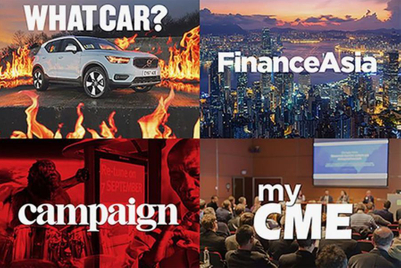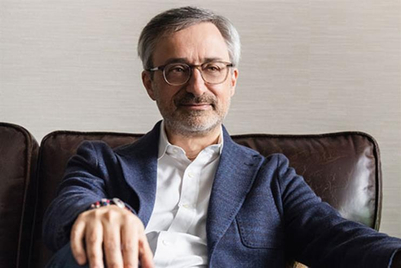
In an age when obituaries to TV advertising are oft-written, it was a vote of confidence from an unlikely source. Mike Hoban is the sales, marketing and e-commerce director of Thomas Cook. This digitally focused retail business rebranded on Tuesday as part of a tough turnaround plan from the chief executive, Harriet Green. It pledged to "significantly increase" a £12 million TV advertising budget.
Thomas Cook is not alone. Latest indicators predict 2013 TV adspend will be more than 3 per cent up on last year. There is little doubt that we are seeing, at the very least, a temporary uplift in TV advertising.
We live in a golden age of television, but the commercial world is wising up to the boundary-free nature of filmic content
Having just returned from a week in New York, the same can be said for other developed markets. You only have to flick on the set to see the swagger of US TV advertising, from Delta Air Lines (Wieden & Kennedy) to Burger King’s new "Satisfries" (Mother). Recent figures from Standard Media Index show that 62.4 per cent of all advertising dollars spent by the big media buyers is invested in TV – a 6.5 per cent increase in overall share year on year.
To what can we attribute this fillip? The cynical (God forbid) will point to powerful TV marketing bodies (such as Thinkbox in the UK). But clients aren’t stupid. Thomas Cook’s rivals, such as TUI Travel and easyJet, have similarly increased their TV spend of late, along with non-travel brands such as Volkswagen.
Increased household optimism must be a factor, with smart brands reading the signs and making an early land grab for market share. Clients seem convinced by new econometrics linking TV ads to sales.
However, the underlying structural factors include a better understanding of how powerful video content engages with consumers and how this content can be integrated across the burgeoning variety of screens in our lives.
Yes, we live in a golden age of television – from The Wire to Breaking Bad – but the commercial world is wising up to the boundary-free nature of filmic content. A Netflix-screened series (House Of Cards) can now gain nine Emmy nominations. And good old "appointment viewing" (The X Factor) may now be driven by social media. So advertisers do have to think very differently about the way they spend their cash.
The new optimism in televisual advertising is to be welcomed. Just don’t fall into the dangerous nostalgia of thinking that nothing has changed.
This article was first published on campaignlive.co.uk


.jpg&h=334&w=500&q=100&v=20250320&c=1)
.jpg&h=334&w=500&q=100&v=20250320&c=1)
.jpg&h=334&w=500&q=100&v=20250320&c=1)




.jpg&h=334&w=500&q=100&v=20250320&c=1)


.jpg&h=268&w=401&q=100&v=20250320&c=1)
.jpg&h=268&w=401&q=100&v=20250320&c=1)


.jpg&h=268&w=401&q=100&v=20250320&c=1)



